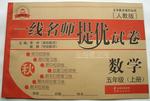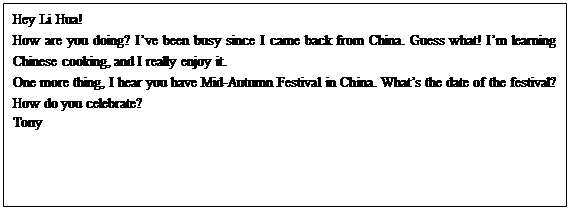题目内容
If an American is satisfied with you,he will put his thumb and forefinger into a circle.That means OK.But in Brazil,the very sign is considered to be rude.In Poland,a guest usually presents flowers to his hostess.The number must be an odd(奇数)one.Besides,the hostess isn’t expected to remove the cover of the bunch of flowers.And usually,the red rose is a sign of love.
Usually we nod to express our agreement and shake our heads to show disagreement.To our surprise these body movements mean the opposite in Bulgaria.
The differences in customs and cultures in the world are really noticeable.We should learn more about them to avoid embarrassment(窘迫).Then,would you please remember:When in Rome,do as the Romans do.
小题1:In Poland,if a man gives some odd red roses to a woman as a present,it means that he ____.
小题2:If an American puts his thumb and forefinger into a circle,it shows that he_____ you.
小题3:In Poland,it is _____ for the hostess to remove the cover of the bunch of flowers somebody has presented to her.
小题4:In Bulgaria,if a man nods, it means that he_____ with you.
小题5:The sentence“When in Rome,do as the Romans do.”Means that______.
Usually we nod to express our agreement and shake our heads to show disagreement.To our surprise these body movements mean the opposite in Bulgaria.
The differences in customs and cultures in the world are really noticeable.We should learn more about them to avoid embarrassment(窘迫).Then,would you please remember:When in Rome,do as the Romans do.
小题1:In Poland,if a man gives some odd red roses to a woman as a present,it means that he ____.
| A.will invite her to a dinner party |
| B.has not been in love with her |
| C.will invite her to a party |
| D.has fallen in love with her |
| A.will be friends with |
| B.is not been in love with |
| C.is willing to help |
| D.is satisfied with |
| A.impolite | B.polite | C.strange | D.popular |
| A.will have a talk |
| B.disagrees |
| C.will shake hands |
| D.agrees |
| A.we should learn from the Romans |
| B.we should work as the Romans do |
| C.we should obey its customs when we are in a foreign country |
| D.we have been Romans |
小题1:D
小题2:D
小题3:A
小题4:B
小题5:C
1.D 根据And usually,the red rose is a sign of love可知是爱的标志,选D。
2.D 来自原文第一句。根据If an American is satisfied with you,he will put his thumb and forefinger into a circle可知答案为D。
3.A 根据Besides,the hostess isn’t expected to remove the cover of the bunch of flowers可知这是不礼貌的行为,故选A。
4.B 从To our surprise these body movements mean the opposite in Bulgaria可知他们的身体行为表达的是相反的意思,故为不同意选B。
5.C 此题是个谚语,表面意思是在罗马,按照罗马人的做。换句话说是入乡随俗,选C。

练习册系列答案
 一线名师提优试卷系列答案
一线名师提优试卷系列答案
相关题目
 mother on Mother’s Day and on Father’s day I give my father 17 , too.” But what about the other days of the year?
mother on Mother’s Day and on Father’s day I give my father 17 , too.” But what about the other days of the year? dialed the number, but then she put down the phone. After about fifteen 19 , she dialed t
dialed the number, but then she put down the phone. After about fifteen 19 , she dialed t he number again, “Hi, Mom…”
he number again, “Hi, Mom…”